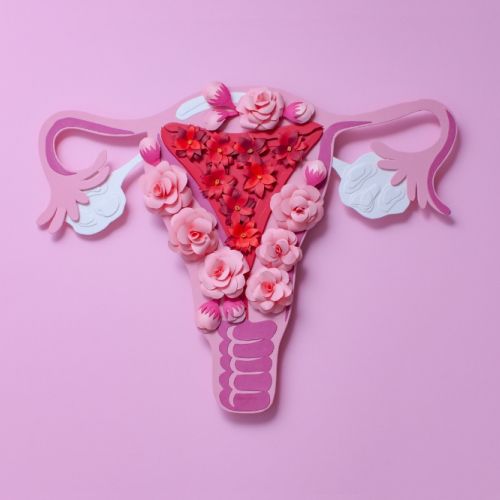Does Birth Control Affect Fertility?

When you decide you want to get pregnant but aren’t able to, it’s natural to start thinking about possible reasons why you’re having trouble. If you have been on birth control for years, you may have assumed that you’d get pregnant soon after discontinuing birth control. When you don’t get pregnant after several months, you may start wondering if birth control is having a lingering impact on your body.
Does birth control affect fertility? No matter what type of hormonal birth control you have been using, it’s not the cause of your fertility challenges even if you’ve been on it for several years. While you’re on birth control, pregnancy is prevented, but once you discontinue birth control, your hormones gradually go back to normal.
Menstrual Irregularities After Stopping Birth Control
While you’re on birth control, your periods are stable and predictable or they may disappear altogether. After discontinuing hormonal birth control, it may take a few months for your hormones to stabilize. You may experience a delay in having your periods start again and you may not ovulate right away.
The length of the delay can be related to the type of birth control you were using. If you were using injectable contraceptives, it may take six months or longer for your hormones to stabilize. It may take three or four months for hormones to stable after coming off other types of hormonal contraceptives. Some women are able to get pregnant within the first month after stopping birth control.
Having difficulty conceiving after discontinuing birth control is more likely to be related to age than to using birth control for a period of time. Fertility naturally declines with age so whether you ever used birth control, you’ll have a harder time getting pregnant over the age of 35 than you had when you were younger.
Problems Covered Up By Birth Control
While hormonal birth control doesn’t cause infertility, it sometimes masks conditions that can cause fertility problems. Birth control makes monthly cycles regular, which means that signs of possible problems like having irregular periods or very heavy periods may disappear while you’re on hormonal contraceptives. Then when you decide to discontinue birth control, it may become apparent something isn’t right.
It’s natural to be concerned that something may be wrong with you if you’re unable to conceive, but infertility isn’t always caused by problems with women. It can also be caused by problems with the man or by problems with both the woman and the man.
There are many possible causes of infertility, but birth control isn’t one of them. You’re considered infertile if you’re under 35 and haven’t been able to get pregnant after a year of unprotected sex or if you’re over 35 and you’ve been unable to get pregnant after six months of unprotected sex.
The team at the Center for Reproductive Health is committed to helping people understand available treatment options for infertility. For more information, schedule an appointment for a comprehensive examination and evaluation or call with any questions you may have.
Eliran Mor, MD
Reproductive Endocrinologist located in Encino, Valencia & West Hollywood, CA
FAQ
What does a reproductive endocrinologist and infertility specialist do?
Reproductive endocrinology and Infertility is a sub-specialty of Obstetrics and Gynecology. In addition to managing medical and surgical treatment of disorders of the female reproductive tract, reproductive endocrinologist and infertility (REI) specialists undergo additional years of training to provide fertility treatments using assisted reproductive technology (ART) such as in vitro fertilization.
Reproductive endocrinologists receive board certification by the American Board of Obstetrics and Gynecology in both Obstetrics and Gynecology and Reproductive Endocrinology and Infertility.
When should I see an REI specialist?
In general, patients should consider consulting with an REI specialist after one year of trying unsuccessfully to achieve pregnancy. The chance of conceiving every month is around 20%, therefore after a full year of trying approximately 15% of couples will still not have achieved a pregnancy.
However, if a woman is over the age of 35 it would be reasonable to see a fertility specialist earlier, typically after 6 months of trying.
Other candidates to seek earlier treatment are women who have irregular menses, endometriosis, fibroids, polycystic ovary syndrome (PCOS), women who have had 2 or more miscarriages, or problems with the fallopian tubes (prior ectopic pregnancy).
What are the reasons we are having trouble conceiving?
Approximately 1/3 of the time cause for infertility is a female factor, 1/3 of the time a male factor, and the remaining 1/3 a couples’ factor.
At CCRH, we emphasize the importance of establishing a correct diagnosis. Both partners undergo a comprehensive evaluation including a medical history and physical exam.
Furthremore, the woman’s ovarian reserve is assessed with a pelvic ultrasound and a hormonal profile. A hysterosalpingogram (HSG) will confirm fallopian tube patency and the uterine cavity is free of intracavitary lesions. A semen analysis is also obtained to evaluate for concentration, motility, and morphology of the sperm.
Additional work up is then individualized to direct the best possible treatment option for each couple.
What is IVF? What is the process like?
In vitro fertilization (IVF) is the process that involves fertilization of an egg outside of a woman’s body.
The process starts with fertility drugs prescribed to help stimulate egg development. In your natural cycle, your body is only able to grow one dominant egg, but with stimulation medication we can recruit multiple eggs to continue to grow. After about 8-10 days of stimulation, the eggs are surgically retrieved and then fertilized with sperm in a specialized laboratory. Fertilized eggs are then cultured under a strictly controlled environment within specialized incubators in the IVF laboratory for 3-5 days while they develop as embryos. Finally, embryos (or an embryo) are transferred into the uterine cavity for implantation.
Should I have IVF?
Before deciding if IVF is the right choice, it’s important to sit down with an REI specialist to discuss available treatment options. For some people, other methods such as fertility drugs, intrauterine insemination (IUI) may be the best first choice treatment. At CCRH, we believe each individual couple is unique and not everyone needs IVF.
Is the IVF procedure painful?
While not painful, the fertility medications may some side effects including headaches, hot flashes, mood swings, and bloating. The injection sites may also bruise.
Will IVF guarantee a baby?
Unfortunately, no. Many people think once they start IVF it’s a matter of time that they will be pregnant and have a baby. But according to national statistics per the Society of Assisted Reproduction (SART), on average 40% of assisted reproduction cycles achieve live births in women under age 35. The chances of success then continue to decrease with advancing age.
At CCRH, we employ only evidence-based interventions to ensure patient safety and optimal outcome. While we cannot guarantee a baby, we guarantee that you will receive the best, most advanced, personalized care to help you maximize your chance of a baby.
What is the success rate for IVF?
The average IVF success rate (success measured in live birth rate) using one’s own eggs begins to drop around age 35 and then rapidly after age 40. This is due to the decline in egg quantity and egg quality as a woman ages.
Our clinic’s success rate consistently beats the national average year after year.
Do insurance plans cover infertility treatment? How much does IVF cost?
Individual insurance plans often do not have any coverage for infertility treatments. If you have a group plan, you can call members services to see if they have coverage for infertility (including consultation/workup and IVF).
After your consultation with our REI specialist, one of our dedicated account managers with sit with you to go over the cost of treatment.




